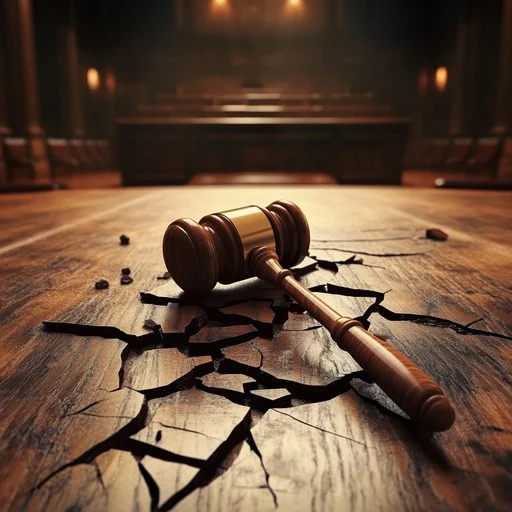The International Criminal Court (ICC) was established in 2002 to address the grave crimes of genocide, war crimes, and crimes against humanity.
It was envisioned as a beacon of hope for global justice, a court that would hold accountable those who commit atrocities when national courts fail to do so. However, the Court’s reliance on financial aid, particularly from the United States, has complicated its role and weakened its standing in the eyes of the world.
For instance, Under President George W. Bush, the U.S. withdrew its support for the ICC, fearing that it could be used to target American citizens. This withdrawal marked a turning point, creating a climate of distrust between the US and ICC. The U.S., recognized for its influential role in global affairs, found its own way to reconcile with the ICC. While funding was restored, it often came with conditions attached.. This reliance on U.S. funds has created a precarious situation for the ICC.
Also Read:Africa Questioning ICC’s Next Move In Silence
Another remarkable example was when the ICC announced plans to investigate alleged war crimes by U.S. personnel in Afghanistan, the reaction from Washington was swift and severe. The Trump administration at the time, immediately imposed sanctions on ICC officials and cut off support, framing their actions as a defense of national sovereignty. This response sent a clear message: any perceived threat to U.S. interests could jeopardize financial backing for the Court. This led to ICC , reducing its spotlight on crime –based issues in the US and rather shine its light brighter to target African leaders who have committed crimes.
It is clear that a court founded with a noble mission to be a beacon of justice on the global stage is gradually sinking deep because of rising distrust amongst many countries mainly due to its perceived unfairness in the justice system.
When an institution like the ICC relies heavily on funding from a single country, it risks being seen as beholden to that nation’s interests. Critics argue that this dependence has compromised the Court’s independence and impartiality, leading to questions about its legitimacy.
Also Read:Why Putin’s Name Sends Shivers in Western Allies
The implications of this dynamics,the U.S.-ICC relations, directly affect how people see the ICC. As it stands, the ICC on the mind of the ordinary person, is just a western institution, influenced by powerful countries like the U.S.
When financial aid is used as a tool for political leverage, it undoubtedly raises significant concerns about selective justice and fairness. This has contributed to a growing disinterest in the ICC’s operations among various member states. Countries like Russia, China, South Africa, Burundi, Gambia have officially not just expressed skepticism about the ICC’s authority and impartiality but have also taken a step further to withdraw or signaled their intention to do so.

It will be recalled that When Former Sudanese President Omar al-Bashir had access to the podium for an African Union summit in 2015, before his ICC ‘s arrest in 2017 and subsequent hearing in 2021,he cited concerns over national sovereignty and the implications of complying with ICC warrants as reasons for Sudan’s withdrawal . Many countries have adopted a stance of non-cooperation with the ICC especially considering the fact that the ICC now relies on member states to hand over- indicted individuals or leaders they seek to arrest for question on crimes against humanity or assist the court in its investigations against them.

International Diplomat Consultant and Political Analyst, Farouk Al Wahab, does not hold back in expressing how the ICC has lost its credibility in the eyes of African countries.
According to him as disinterest in the ICC grows, some countries are turning to regional justice mechanisms as alternatives. Initiatives such as the African Court on Human and Peoples’ Rights or the Inter-American Court of Human Rights offer platforms for addressing human rights violations within specific contexts. While these courts can be more sensitive to regional issues, they also risk being influenced by political considerations and may lack the universal jurisdiction that the ICC was designed to provide.
As we consider the future of the ICC, it’s crucial to address these challenges head-on. The Court must find ways to diversify its funding sources and reduce dependence on any single country. This will somewhat liberate the ICC from external pressures and perhaps restore faith and regain its standing as a respected institution dedicated to upholding justice for all.
But until that is done , the fact remains that countries that may have once viewed the ICC as a neutral arbiter now question whether it can act independently when its funding is tied to the interests of one nation.







